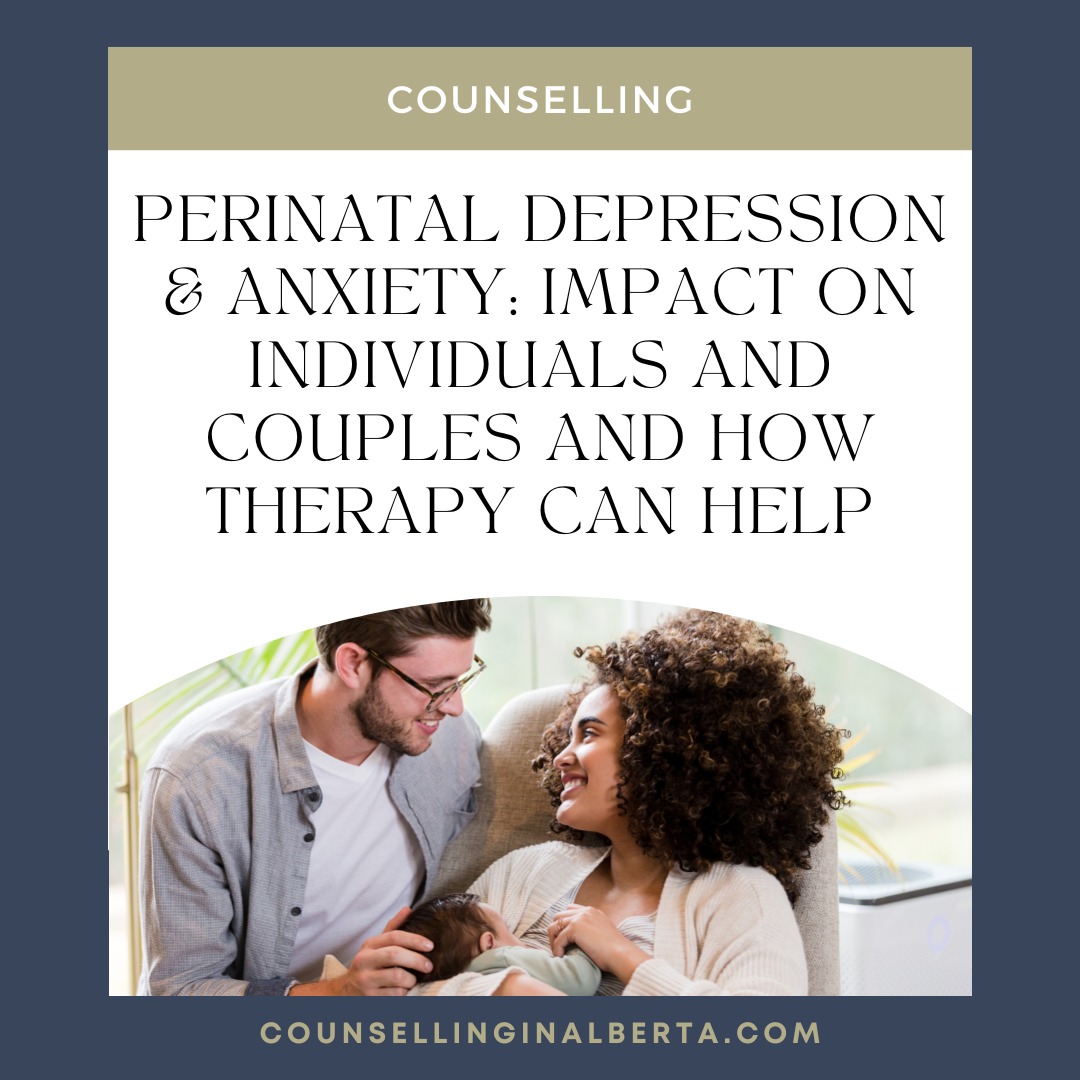Perinatal Depression & Anxiety: Impact on Individuals and Couples and How Therapy Can Help
The arrival of a new baby is a time of joy and celebration. However, for many parents, the reality can be far more complex.
Postpartum and Perinatal Mental Health
Becoming a parent is one of life’s most significant transitions, bringing a mix of emotions—joy, stress, anxiety, and sometimes depression. If you feel this way, you're not alone. At Williamson & Associates, we understand the challenges of parenthood and are here to support you through this challenging time.
Postpartum and Perinatal Depression and Anxiety
Pregnancy and childbirth can lead to mental health challenges, such as perinatal depression and anxiety, or even PTSD, which affect both mothers and fathers. These conditions go beyond the "baby blues," with nearly 23% of Canadian mothers reporting symptoms of postpartum depression. Perinatal anxiety impacts 10-20% of new mothers and about 1 in 10 fathers.
Symptoms, Risk Factors, and Causes
As a new parent, it's easy to feel overwhelmed and isolated, especially when things don't seem to be going the way you expected. During the perinatal period, you may experience sadness, fatigue, restlessness, guilt, and irritability. You may have difficulty with sleep, decision-making, eating, racing thoughts, and constant exhaustion.
Most new parents are unprepared for the challenges of juggling their baby’s sleeping and feeding schedules, constant worry, and the demands of work and personal life. The emotional toll, loss of freedom, and feeling overwhelmed can lead to frustration and strain on relationships, especially when it feels like their partner’s life hasn’t changed as much. You might resent your partner, for example, even though you know it's not their fault. You may feel like you're carrying the weight of everything and can feel too much. Still, such feelings often go unspoken, leading to miscommunication and tension in your marriage, sometimes with long-term consequences.
It is believed that a significant drop in hormone levels after childbirth, combined with genetic, emotional, and environmental factors, can trigger both postpartum depression and anxiety. Risk factors include a history of depression or anxiety, lack of support, and stressful life events. For many, the sudden loss of control over their previous life, sleep deprivation, overwhelming new responsibilities, and societal pressure to instantly adapt to parenthood can further contribute to anxiety and depression.
How to Identify Postpartum and Perinatal Depression and Anxiety in Yourself or Someone You Love
If you or someone you know is withdrawing from loved ones, feeling overwhelmed, or struggling to enjoy things they once loved, it may be time to seek help. Similarly, if distressing thoughts dominate daily life or if you or your partner are constantly on edge and exhausted, perinatal anxiety could be the cause.
Postpartum and Perinatal Post-Traumatic Stress Disorder (PTSD)
Perinatal PTSD can develop after a traumatic birth. It's estimated that 4-6% of women experience PTSD after childbirth due to complications like loss or traumatic births, emergency C-sections, or moments during labour when you felt utterly powerless.
You might find yourself experiencing flashbacks, nightmares, or feeling constantly on edge after a challenging birth experience. Maybe you're avoiding anything that reminds you of the traumatic event, like hospitals or even conversations about birth.
How to Identify Perinatal PTSD in Yourself or Someone You Love
If you or your partner are struggling with intrusive thoughts about the birth or find yourselves avoiding anything related to childbirth, PTSD could be a factor. Professional therapy can help in processing and healing from the trauma.
Impact of Untreated Postpartum and Perinatal Mental Health Problems
Leaving perinatal mental health concerns untreated can affect your ability to bond with your baby, strain your relationship, and negatively impact overall family well-being. Research shows that children of parents with untreated mental health challenges are more likely to develop emotional or behavioural problems.
Pre-Pregnancy Counselling for Postpartum and Perinatal Mental Health
Counselling before pregnancy can address emotional vulnerabilities and help prepare for the changes ahead, reducing the risk of perinatal mental health challenges.
New Fathers and Mental Health Problems
Mental health challenges aren't limited to new mothers. Around 10% of new fathers report feeling depressed or anxious after the birth of a child. Fathers may feel overwhelmed, sleep-deprived, or disconnected from their partner.
Therapy for Postpartum and Perinatal Mental Health for New Moms and Dads
At Williamson & Associates, we offer several therapies to support new parents:
Emotionally Focused Individual Therapy (EFIT) helps individuals explore and express their emotions, building self-awareness and resilience.
Emotionally Focused Couples Therapy (EFCT) strengthens emotional connection and communication between partners, helping them navigate new parenthood together.
Eye Movement Desensitization and Reprocessing (EMDR) is effective for processing traumatic memories, particularly birth trauma.
Accelerated Resolution Therapy (ART) helps reduce the impact of traumatic memories and anxious thoughts through visualization and eye movements.
Somatic Experiencing (SE) addresses the physical and emotional toll of trauma, offering relief for stress-related challenges.
How Perinatal Individual and Couples Counselling Can Help
Perinatal counselling provides a safe space for new parents to express their fears and frustrations. Therapy helps individuals and couples reconnect emotionally, resolve conflicts, and strengthen their relationship during the challenging transition into parenthood.
If you or your partner are struggling with perinatal mental health, remember that help is available. At Williamson & Associates, we offer specialized therapies to support you on your parenthood journey.
Reach out today to learn how we can help.
See other posts about Couples Counselling in Olds, AB:
ADHD and Marriage: How EFT Couples Counselling Can Help Couples Affected by ADHD
Understanding Different Attachment Styles and Their Impact on Relationships
Couples Counselling, Family Therapy and Mental Health: Supporting Each Other Through Tough Times
Financial Stress and Relationships: How Couples Therapy Can Help
Rekindling Intimacy: A Couple's Guide to Sexual Healing and Connection
The Top 5 Myths about Couples Counselling, Marriage Therapy and Relationship Therapy





